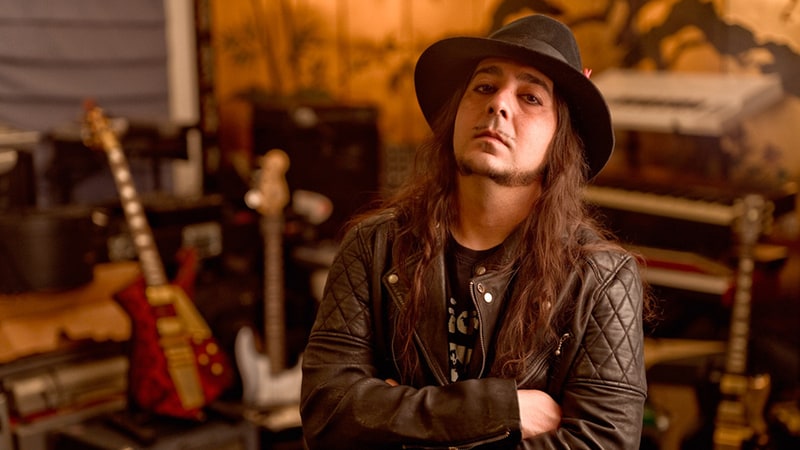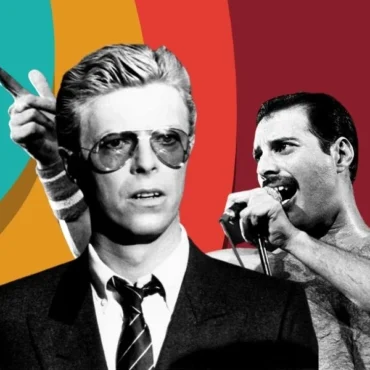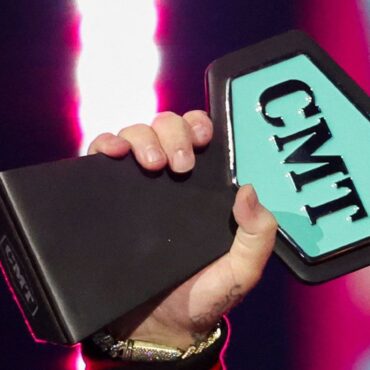chevron_left
-
play_arrow
NGradio So good... like you
share
close
Six years ago, Daron Malakian recorded an album for his side project, Scars on Broadway, Now, he’s finally ready to release it.
For the past six years, System of a Down guitarist Daron Malakian has been sitting on an entire album with no plans of releasing it. He recorded it entirely himself with the intention of putting it out under the name Scars on Broadway, a side band he launched during System’s mid-2000s hiatus, but he shelved it when the other band started up again in case they needed songs for their own new LP. With the realization that System of a Down won’t be recording anytime soon, Malakian tells Rolling Stone he’ll release a 12-song record under the Scars on Broadway moniker this summer.
“I gotta be honest, it’s been hard,” he says. “It’s been hard being patient.”
He’s now previewing the album, Dictator, due July 20th, with a giddy, bouncy new single called “Lives,” which is meant to commemorate the Armenian Genocide and celebrate its survivors. “All of our lives we’ve put up a fight, all heroes have died,” he sings in his trademark, almost operatic way. “All of our lives we’ve known wrong from right, our people survived.”
“I’m Armenian, so I wanted to do something for Armenian people – especially since April 24th is the day we remember the genocide,” he says, noting the date the country recognizes as the start to the genocide propagated by Ottoman Turks in 1915. “It’s about being proud that people did survive the genocide, and it’s not just for Armenian people. It could be for anybody whose people have suffered that type of thing, such as Native Americans.”
He’s also using the song to effect positive change to survivors of the genocide. Half of the proceeds from purchases of the song on iTunes will go to sending first-aid kits to Artsakh, a republic populated mostly by Armenians that borders Iran and Azerbaijan. “There was supposed to be a cease fire, but the Azeri government does not follow that all the time, so there’s a lot of women and children that get caught in the middle of all this, and I really wanted to send some first aid kits out to Armenians that are living there,” he says, referring to the conflict between the country and Azerbaijan. “It’s very possible that another genocide can happen, so I really want to bring attention to what’s happening there and keep that from happening.”
Malakian explains what people should expect from the return of Scars on Broadway and the future of System of a Down
What is “Lives” about?
For me, it’s about how Armenian people have survived the genocide. I’ve always heard about how we were victims, and we always saw pictures of our ancestors and our great grandparents with their heads chopped off. I wanted to write a song that would be a morale booster, something uplifting and let people know that while there were a lot of people that died and we should respect that, there was also a lot of people who survived. It’s a tribute to that and how far we’ve come. The video complements the song really well.
How did the video come together?
We feature a lot of traditional, old Armenian folk dancing that matches the song. My father, aside from being an artist – he did the first Scars album cover and [System’s] Mezmerize and Hypnotize albums – was a pretty well known choreographer in Iraq before they family moved to the United States. It’s always been a part of my life. When I wrote the song, I always pictured the video with this style of dance [and] costumes. It’s also another way to boost morale and have us look at our culture and be proud of our culture. When people think of Armenians, they think of genocide. I don’t want to be looked at as a victim forever. I want to show people other parts of our culture, and this video does that.
You played the public square in Yerevan, Armenia on the 100th anniversary of the genocide with System of a Down. How did that feel?
That was a high point of my career as a musician. I think everyone in System of a Down feels that way. The show was great and really emotional for us.
Do you get to spend much time in Armenia?
No, I’ve only been there once. I was there for four, five days. It was long enough to see some statues and monuments and things like that. It was really emotional for me, because I had grandparents who were born there but then had to move to Iraq because of the genocide. They’re not around anymore, but I could just feel their spirit with me when I was flying into Armenia and onstage. It was pretty emotional.
President Trump has been outspoken in his support of Jerusalem and Israel. Do you think he would take a similar stance and recognize the Armenian genocide?
No, I don’t see Trump doing that. The United States has a relationship with Turkey. It’s a political relationship, and I guess they don’t want to offend Turkey. But the relationship has been a little shaky lately. There are American politicians that have come out and say they recognize the genocide, but I guess I get why it doesn’t happen. We need Turkey to be an ally in that region.
Obama said he personally recognized it but that was as far as he took it.
Yeah, it’s tough as an Armenian. I have a line in the song that says, “We are the people that were kicked out of history.” And that’s a reference to all of that. I didn’t grow up seeing the genocide in my history books. It was almost like they erased that part of history. For Armenians, it’s frustrating. It’s affected our healing. With “Lives,” I want to help with the healing.
“I wanted to write a song that would be a morale booster; something uplifting”
Let’s talk about the Dictator album. You were teasing it back in 2012.
I recorded the album and then around that time System started playing live again. So every time we’d play live, there’d be conversations like, “Maybe we’ll do an album.” So being the guy who wrote the majority of almost all the System songs in the past, I was like, “All right, let me see what’s happening with it. Let me hold onto these songs and let me see how this develops.” We talked about it and we weren’t all on the same page. Not everybody was into the idea. But every time we played live, it kept coming up.
I just got to the point now where a lot of people were asking about the Scars album – I hear it all the time – so I was like, “I’m gonna put this album out.” Not knowing what’s happening with System has kept me from putting my own stuff out. Too much time has passed, and I’m really excited to finally get some music out finally.
Is everything on the album from 2012?
Yeah. I played everything on it. I went into the studio and recorded an album in less than 10 days. I played all the instruments – the drums, everything – and I’ve just been sitting on it for six years [laughs].
Why did you want to record everything yourself? System drummer John Dolmayan was on your first album.
I realized it was better for me to just go off and get started on my own. John was not involved anymore when I recorded the album. It just seemed easier for me than to put together a group of musicians and teach them the parts.
When you wrote the songs, were you thinking of them as Scars on Broadway songs?
Yes, but this album has more of a System flavor to it than the first Scars on Broadway did. There were songs on the first Scars album, like “Stoner Hate” and “Babylon” that could have easily been System of a Down songs, too, but there were also songs that leaned a little more on the rock side. This album has that rock flavor as well, but it has more of a System of a Down flavor, too, because System has more of the metal tones going on there.
Why do you think that is?
I don’t know. When you hear System of a Down, a lot of it is my signature. No matter what I write, you’re going to hear those colors. It’s something that comes out that way.
Is it weird for you to be putting this out six years later? You’ve had to have grown so much as an artist since then.
I wish it didn’t take six years. One regret I have is not putting out any music for as long as I have, but it’s not really weird because the style is still there. It’s still part of my signature, even with the stuff I write now. I’m going to put out a third Scars album soon, as well. I’ve written a lot of songs for it, and I’m rehearsing with the band, and in the next four months or so we’ll hopefully go into the studio.
Has System of a Down abandoned the idea of making a new album?
No, it’s not abandoned. But as of right now, not everyone is on the same page. Trust me, man, I’m probably the biggest System of a Down fan in the world. I mean, I named the band [laughs]. So I’d like to see something like that happen.
But we’re all friends. We all still go out. We play the songs live. We enjoy it. But doing an album is a totally different thing than playing the songs we already have live. It takes a little bit more togetherness, a little bit more commitment from everybody, and I’m not sure everybody is ready to commit to that right now. And it is what it is, man. I can’t force anybody to do anything they don’t want to. But with that said, our relationship as friends, and even as a band, is healthy. It’s respectful, and we support each other with anything each one of us does on our own. It’s not one of those things where there is bad blood and I can’t be in the room with that guy. It really comes down to where each person is in his life and not everybody is ready to commit the same way I might be.
“Not knowing what’s happening with System has kept me from putting my own stuff out.”
Is the issue with the time commitment of making an album or a creative disagreement?
It’s both creative and time. I don’t have kids, but they all have kids. They’re in a little bit of a different place. It’s not something that’s like, “That’s not gonna happen,” but as of right now, that’s not where we’re at.
System of a Down have a few dates planned laster this year. Will Scars on Broadway be touring?
We don’t have anything set, but if good opportunities come our way to do something cool or open up for bigger bands, I’m very open to touring. We’re planning on doing some shows, but there are no dates or anything.
Since you have largely been out of the public eye, aside from touring, how have you been spending your time?
I still write. I have a lot of material. I have a girlfriend with a family. I’m still focused on music in the last couple of years. I did a song with Linkin Park a couple of years ago. When things come my way, I do them, but I still focus on writing. It’s just that I haven’t released anything, mainly because I was unsure of what was happening with System. I’ve always hesitated. But I keep myself busy writing. I’m the kind of guy that even if nobody hears what I do, I still enjoy writing, so I do it.
Speaking of Linkin Park, you recently joined the band onstage for the Chester Bennington tribute. Was that difficult for you?
It was kind of strange, because Chester’s vocals were going on as background vocals throughout the song, through the monitors. It was kind of emotional for his band members. When we were rehearsing, I remember them telling me when they heard his vocals in the playback when they play to a click, it was always Chester’s, and that was emotional.
I really enjoyed working with those guys on “Rebellion.” What happened with Chester was such a shock, because I would’ve never guessed it from the guy. He was the type of guy that lifted your spirits if you were in a bad mood. But that song was fun to make, and I think it has some System flavor in there, too. Whenever I write with Linkin Park or my own Scars stuff, that signature style is going to be there.
How did that style evolve?
In the early days of System, Serj [Tankian] and I were in a band called Soil. That’s where the sound developed, but with Soil we were doing six-minute, seven-minute–long songs – and they weren’t really songs, they were just like a lot of riffs. By the time I was 18, 19, I started listening to songwriters like Bowie and the Beatles, so I was like, “I wanna take what we’re doing here in Soil and compress it into two-and-a-half minutes and make it more of a song structure, where it’s verses and choruses and hooks,” and that’s how the System style developed.
In those days, man, I wanted to write the music that I couldn’t buy at the record store. I wanted a band that has everything. You can see System as a heavy band, but there are all kinds of other things going on stylistically that is not heavy metal, and I wasn’t afraid to mix other colors in with the metal. And there is humor in System of a Down, which is something that a lot of people kind of shy away from. It’s sometimes hard to pull off, but we have that. I just couldn’t find from another band at the record store that I wanted to hear. Now, when I write, it just flows out of me that way.
Source: rollingstone.com
Written by: New Generation Radio
Rate it
Similar posts
ΔΗΜΟΦΙΛΗ ΑΡΘΡΑ
COPYRIGHT 2020. NGRADIO





















Post comments (0)